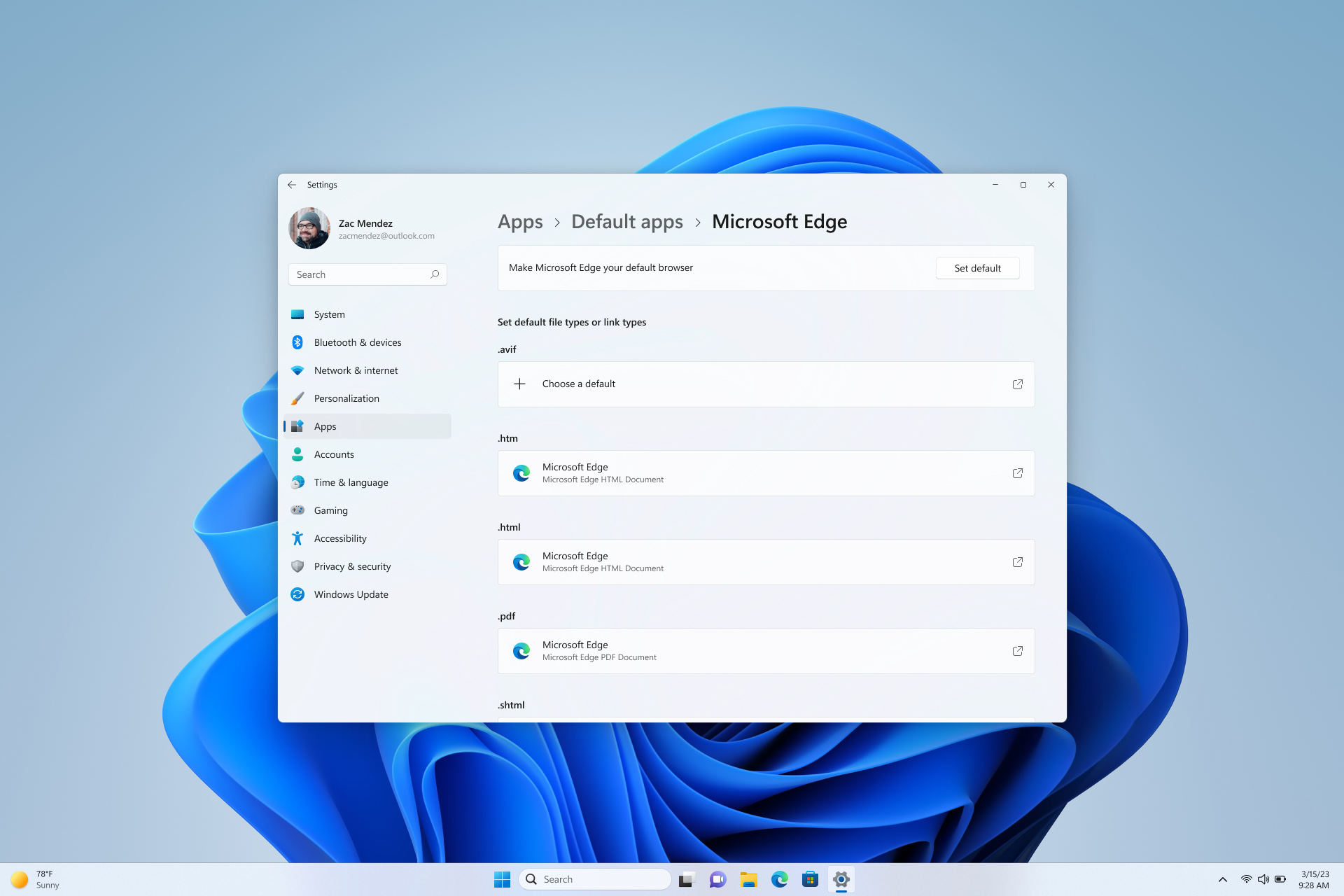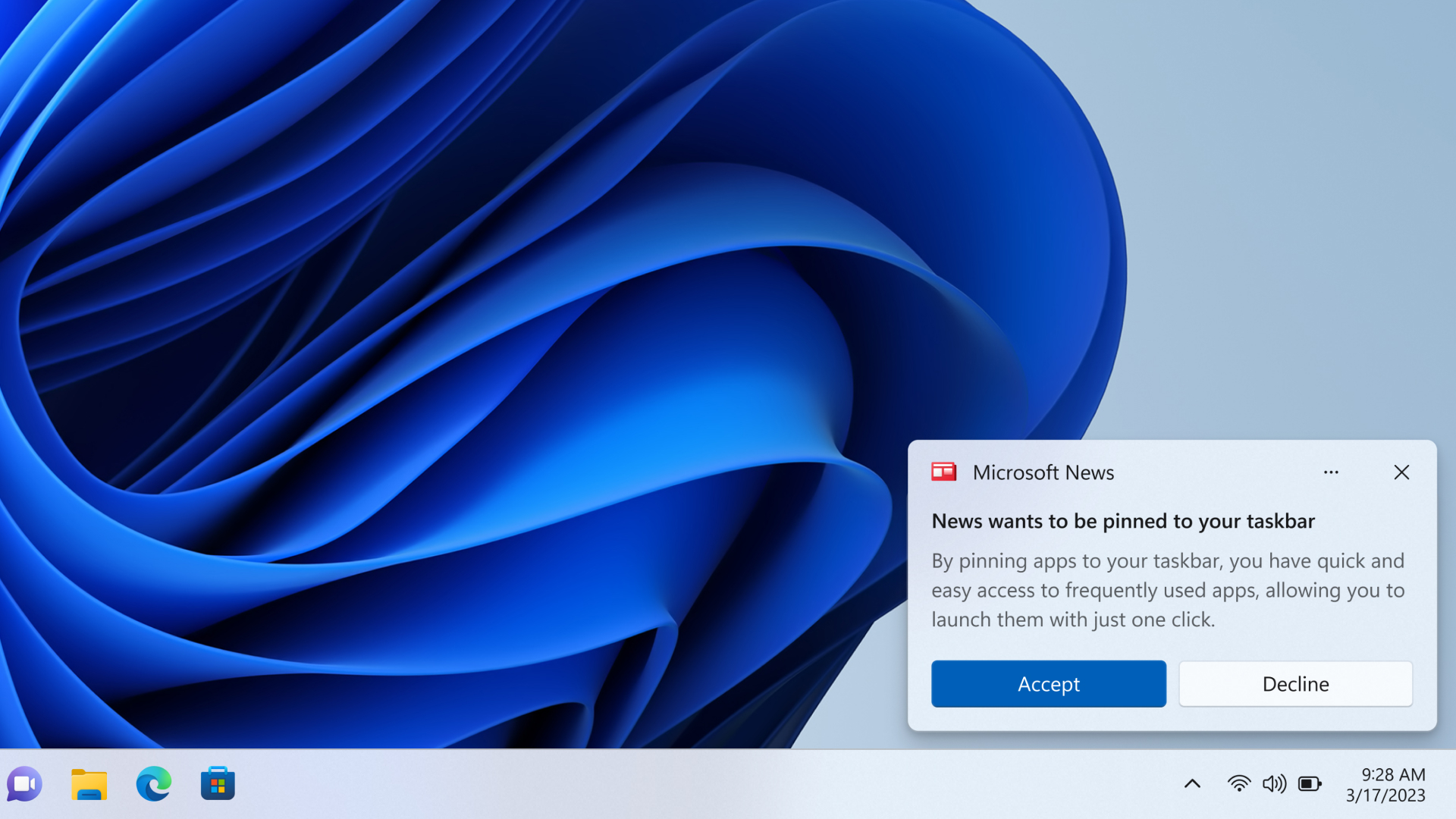Today we’re reaffirming our long-standing approach to put people in control of their Windows PC experience and to empower developers to take advantage of our open platform.
We want to ensure that people are in control of what gets pinned to their Desktop, their Start menu and their Taskbar as well as to be able to control their default applications such as their default browser through consistent, clear and trustworthy Windows provided system dialogs and settings.
Third party applications running on Windows and Microsoft’s own apps and features will have access to methods for pinning to these key user experiences and access to directing users to change defaults. Apps may offer features to lead users to the appropriate dialog or setting, but users are ultimately in control through standardized and clear experiences to inform their decisions.
Specifically, today we are committing that:
- We will ensure people who use Windows are in control of changes to their pins and their defaults.
- We will provide a common supported way for application developers to offer the ability to make their app the default or pin their app to the taskbar. This will provide users a consistent experience across all apps.
- Microsoft apps will use the same common supported methods for pinning and defaults.
Hand in hand with these commitments today we are announcing the following new Windows features that represent our officially supported methods for apps to engage with pinning and defaults:
- For defaults, we will soon introduce a new Settings deep link URI for applications to take their users directly to the appropriate location in Settings for the user to change their defaults. This is an extension to our existing ms-settings: URI scheme. Learn more about ms-settings: URI schemes.
 An example Settings page where the new deep link URI will land a user if called by an application such as the Microsoft Edge browser.
An example Settings page where the new deep link URI will land a user if called by an application such as the Microsoft Edge browser.
- For pinning, we will soon introduce a new publicly available API that will enable apps to pin either primary or secondary tiles to the Taskbar. This API will always invoke a trusted Windows user experience to clarify what is being requested to be pinned and to confirm that the user indeed wants to allow the pin to occur.
 Conceptual UX for pinning confirmation when called by an application. (Not final Experience.)
Conceptual UX for pinning confirmation when called by an application. (Not final Experience.)
We will launch these new features first in a Windows Insider Dev Channel flight in the coming months. Learn more about our Windows Insider Program for Developers.
As a platform we also believe that to deliver the trust, safety and security that customers look to Windows to provide, we have a responsibility to ensure user choices are respected. We have taken and will continue to take steps to mitigate unrequested modifications to a user’s choices and expect to do more later this year after application developers have had time to incorporate these new best practices.
We also understand it is important that we lead by example with our own first party Microsoft products. Therefore, we are committing that Microsoft Edge will release an update that adopts the new Settings deep link URI for defaults and public pinning APIs as they become available.
Ultimately, we believe that this principled approach will promote a more open Windows experience that better serves our users and application developers alike.
Source: Windows Blog
—